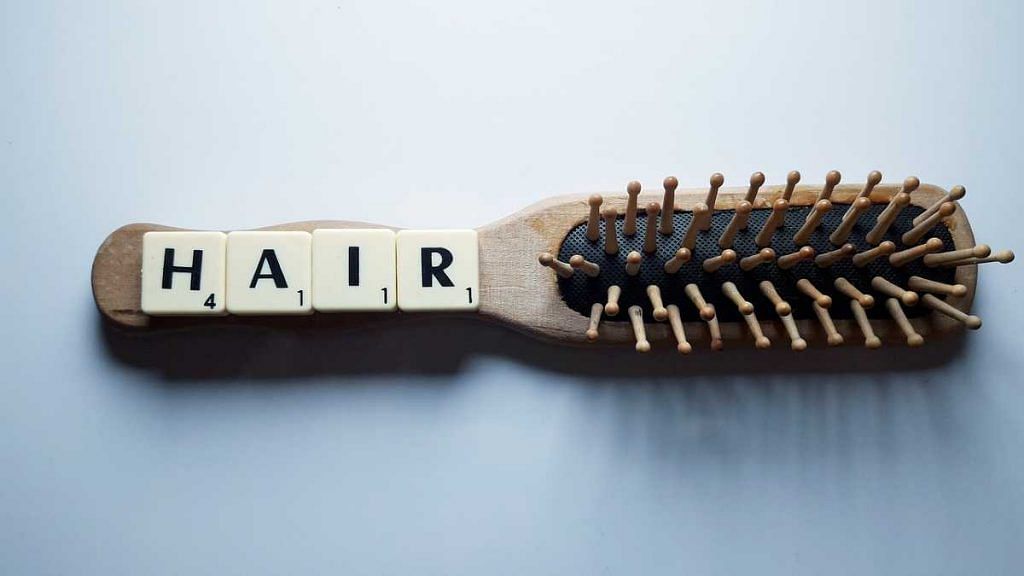Bengaluru: That stress leads to hair loss is a well-known fact. However, so far, little had been known about the mechanism that causes stress hormones to cause this. A new study, led by researchers from Harvard, may have the answer.
Working on mice, the researchers found that stress kept the hair follicle in its resting state, preventing the growth of new hair for a longer time than normal. The findings have been published in the Nature journal.
Hair today, gone tomorrow
The life of hair follicles is typically divided into three stages: growth phase — when hair is constantly produced; rest stage — when produced hair remains in place for a while before falling off, but new hair is not produced; and degeneration phase — when the hair follicle shrinks before existing hair falls off.
The researchers started by trying to understand the role of the adrenal glands that produce the stress hormone corticosterone, in the process of hair loss. For this, they surgically removed the adrenal glands from the mice on which the study was being conducted. What they found was that the hair follicle in these mice had a much shorter rest phase, with more frequent growth phases. The process of hair growth was slowed to normal, by administering corticosterone to these mice.
Over a period of nine weeks, the researchers also administered the stress hormone, in no constant pattern, to mice in whom the adrenal glands had not been removed. The result was elevated corticosterone levels and reduced hair growth in these mice, with hair follicles in a prolonged rest phase than usual.
To understand the molecular process behind this effect, and to understand if it can be reversed, the team of researchers traced the path through which stress hormone travels to hair follicles. They found that the corticosterone attaches to receptors on cells near the follicles, called the dermal papilla cells. To confirm its role, the researchers selectively deleted the receptor in some mice and then administered the corticosterone. The result was normal hair growth, with follicles not being in prolonged rest phase.
Subsequently to determine how the attached hormone stops hair growth, they profiled the messenger RNAs which transmit the hormone and discovered a protein called growth arrest specific 6 (GAS6) which seemed to relay instructions to grow hair. It seemed the corticosterone caused dermal papilla cells to stop producing GAS6. They tested this by delivering GAS6 into the skin of the animals using an adenovirus vector, much like the Covishield/AstraZeneca Covid vaccine. This resulted in stimulated hair growth, even when the mice were in a condition of high stress.
Also read: Mental health issues like depression, stress could make Covid vaccines less effective — report
What’s in it for us?
The better understanding of the role of GAS6 and how hair growth cycles work in humans under stress could potentially help treat stress-related hair loss. However, the study has some limitations: while corticosterone is the mouse-equivalent of cortisol, the stress hormone produced in humans, we still do not know if cortisol works the same way at a molecular and chemical level.
The study also doesn’t answer why dormant hair in rest stage falls off. The authors speculate that the stress hormone causes it to become loose and fall off.
Additionally, further studies are needed to determine whether the injection of GAS6 could alter any other cellular or genetic mechanism as well.
(Edited by Poulomi Banerjee)
Also read: Hair rebellion — from Kautilya, Omar Abdullah to people in Covid lockdown
